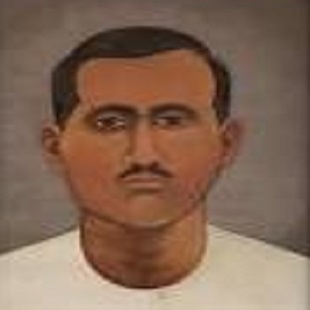
Banchhanidhi Mohanty was one of the few literary icons who had galvanised people against the atrocity of the government by his fiery and thought provoking poems which had stirred the people. He was born on 20 April 1897 in village Eram, known as ‘Jallianwala Bagh of Odisha’ in the district of Bhadrak. Inhabited predominantly by the fishing community, farmers and other marginalized community they were severely exploited by the Zamindars. The father of Banchhanidhi Mohanty was Chintamani Mohanty who, though an employee of the zemindar of Eram, vehemently protested against his oppressions for which he came under his wrath. The ignominy suffered at his hands forced him to quit his job and settle in Bhadrak. Here he started his profession as “Moharir” and was able to provide better education to his children. After completing his matriculation in Bhadrak High school he completed his FA in Ravenshaw College, Cuttack. During this period he got himself involved in many student agitations. The close contact with Krushna Prasad Basu, his hostel-mate stimulated his poetic talent. He also came in contact with Laxmikanta Mohapatra and Gopabandhu Das during this time which fine-tuned his poetic talent .
In 1915, he was appointed as Inspector of school in Nilgiri. In his village Eram he had founded ‘Radhamadhav Theaters Party’ whose objective was to demonstrate to people the evils of British rules, caste distinction, superstition and intoxication. He had donated two thousand rupees to this party which he had received as dowry and himself took an active part in the theatre. His revolutionary writings started after Jallianwala bagh massacre in 1919 which deeply hurt him. Thereafter he joined the non-cooperation movement after resigning from the job and wrote many poems pertaining to freedom struggle and other social evils. He was not only a poet but also an accomplished musician who set his patriotic songs into lilting tunes which stirred the imagination of the people. He was jailed on 7 July 1922 for organizing a secret conclave at Eidgah Maidan in Kuansh, Bhadrak, attended by Pandit Gopabandhu Das and local leaders, to prepare future action plan for the ongoing freedom struggle and was sentenced to two years imprisonment.
He was so courageous that in a conference of Utkal Sammilani he sang a song about the oppression of Raja of Kanika in his presence which infuriated him and plotted to murder him. In 1930 he joined Salt satyagraha to manufacture salt in his own village Eram for which he was arrested and sentenced to six months imprisonment and fined two hundred rupees.
Banchhanidhi had followed the Gandhian way for the uplift of Harijans and practiced it heart and soul. He had understood the role of cow in the economic life of the poor people of Odisha. Therefore through his poems, he projected the cow as mother and appealed to the people of the society to preserve her. These two important social works of poet Banchhanidhi have immortalized his name in the annals of the history of modern Odisha as a social reformer. He breathed his last on 19 April 1938 at the early age of 41 only. This revolutionary poet of Odisha is aptly compared with Qazi Nazrul Islam, the illustrious revolutionary poet of Bengal.